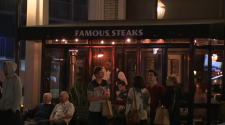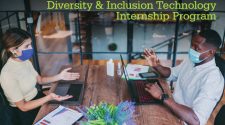Universities are failing to address tens of thousands of racist incidents every year because they are in denial about the scale of the problem, the government’s equality watchdog has warned.
An inquiry by the Equality and Human Rights Commission (EHRC) found that about a quarter of minority ethnic students, including non-British white students, said they had experienced racial harassment since the start of their course.
Of those, black students reported the highest rate of racial harassment (29%), followed by Asian students (27%) and mixed/other students (22%). Meanwhile, 9% of white British students said they experienced racial harassment, including anti-English, anti-Welsh and anti-Scottish sentiments.
The report, Tackling Racial Harassment: Universities Challenged, also found 8% of all students surveyed suffered racial harassment in the first six months of the last academic year, which amounted to about 180,000 students across the UK.
A third of those said they reported racist incidents to their university, the equivalent of 60,000 students nationwide. Yet a separate survey of 141 universities by the body found only 920 formal complaints of racism by students and staff recorded between September 2015 and February 2019. Of these, 560 were made by students, equivalent to only about 80 complaints every six months.
Rebecca Hilsenrath, chief executive at the EHRC, said the findings showed universities were “not only out of touch with the extent that [racism] is occurring on their campuses, some are also completely oblivious to the issue”.
Professor Julia Buckingham, president of Universities UK, which represents 136 universities, described the findings as “sad and shocking”, and called on vice-chancellors to publicly commit to making tackling racial harassment a top priority.
But prominent academics of colour have condemned the commission for also including harassment against white students in the figures, which they said showed a worrying lack of understanding of racism.
Kehinde Andrews, professor of black studies at Birmingham City University, said: “The idea that you could equate the racism experienced by someone who is black, with the experience of a Welsh [person] at an English university demonstrates just how ignorant the authors of the report are. [The report] conflates racism with individual harassment and entirely minimises the racism by including groups who do not experience racial prejudice.”
Ilyas Nagdee, former black students officer at the National Union of Students, praised the report for highlighting the scale of racism at universities. But he added that its attempt to equate anti-white harassment with racism did “injustice to the daily realities of students and staff of colour”.
Dr Nicola Rollock, who has written a report about the barriers facing black female academics in the UK, said the EHRC’s inclusion of anti-white harassment “will only serve to confuse universities who already struggle to understand and address racism against black and Asian groups”.
But she added this should not detract from the report’s main findings that showed universities were overconfident about addressing racism and that black, Asian and minority ethnic (BAME) students and staff suffer in a hostile environment.
The EHRC found that two-thirds of students and more than half of staff did not report racial harassment to their university, often because they had no confidence that the matter would be addressed. Others were deterred due to fears of reprisals by their tutors or managers.
Yet almost half (43%) of universities told the inquiry they thought all racial harassment against students on their campus was reported.
The inquiry found that almost two-thirds of students who reported being racially harassed said the abuse came from other students, with more than a quarter saying the abuse came from academics. Most staff who said they were racially abused said the perpetrator was a colleague, often the victim’s manager.
The Equality and Human Rights Commission (EHRC) was formed in 2007 to promote and uphold equality and human rights laws across England, Scotland and Wales. It bought together the work of three previous bodies -the Commission for Racial Equality, the Disability Rights Commission and the Equal Opportunities Commission.
The Commission’s role includes enforcing equality legislation on ‘protected characteristics’ – age, disability, gender, marriage, pregnancy, race, religion and sexual orientation.
The EHRC’s powers range from simply providing advice to organisations, to holding inquiries to ensure that equality laws are enforced and to work towards ending discrimination and harassment. Ultimately the EHRC can take organisations to court in order to force them to comply.
A fifth of students who were racially harassed said they had suffered physical assaults. More than half of them said they had suffered racial slurs and insults, including the N-word and the P-word, from other students and from lecturers.
Other commonly experienced forms of racism included micro-aggressions, such as dismissive and stereotyping comments, and being ostracised.
The report called on the government to introduce a mandatory duty on universities to take reasonable steps to protect staff from harassment.
It also recommended that universities improve their handling of complaints, ensuring investigations were led by staff trained in understanding racial harassment. If universities failed to take action, they should also be made legally liable for student-on-student harassment.
Nicola Dandridge, chief executive of the Office for Students – the independent regulator of higher education in England – described the EHRC’s findings as “deeply troubling”.
She said: “It is a particular concern that many students do not feel confident in reporting incidents of racial harassment and have low confidence in their complaints being dealt with. That almost half of universities believe that every incident of racial harassment against their students was reported indicates a worrying complacency.”
A Department for Education spokeswoman said: “Racial harassment is unacceptable and we cannot tolerate staff and students being victims of it at our world-leading universities. We expect institutions to take their responsibilities under the Equality Act extremely seriously and have robust procedures in place to respond to incidents.”
’I was told I was overreacting’
A black female student in her final year at a Russell Group university said her experience of racism during her degree had been all-encompassing.
She said it ranged from “a lack of diversity in my lectures – I have never had a lecturer of colour – to being called the N-word in the street, and students dressing up in blackface and not being adequately reprimanded for it”.
During her year studying abroad in Spain, she made a complaint about a lecturer who was making racist comments in class. When the Spanish university did not deal with it, she took the matter up with her UK university.
“They quickly brushed off my complaint as a cultural difference,” she said. “I was essentially told that I was overreacting and to not take the complaint any further or to leave the placement.
“This was extremely upsetting – a raw example of how badly they are at dealing with racism. In my time of need I expected them to back me up, and they didn’t. I have lost all trust in them.”
The student added that the lack of minority ethnic lecturers in her department was a symptom of institutional racism at the university.
“There is no person of colour in a senior level position,” she said: “I think this is why when I called out racism they tried to silence me, as there is really no one with the same lived experience as me.”















